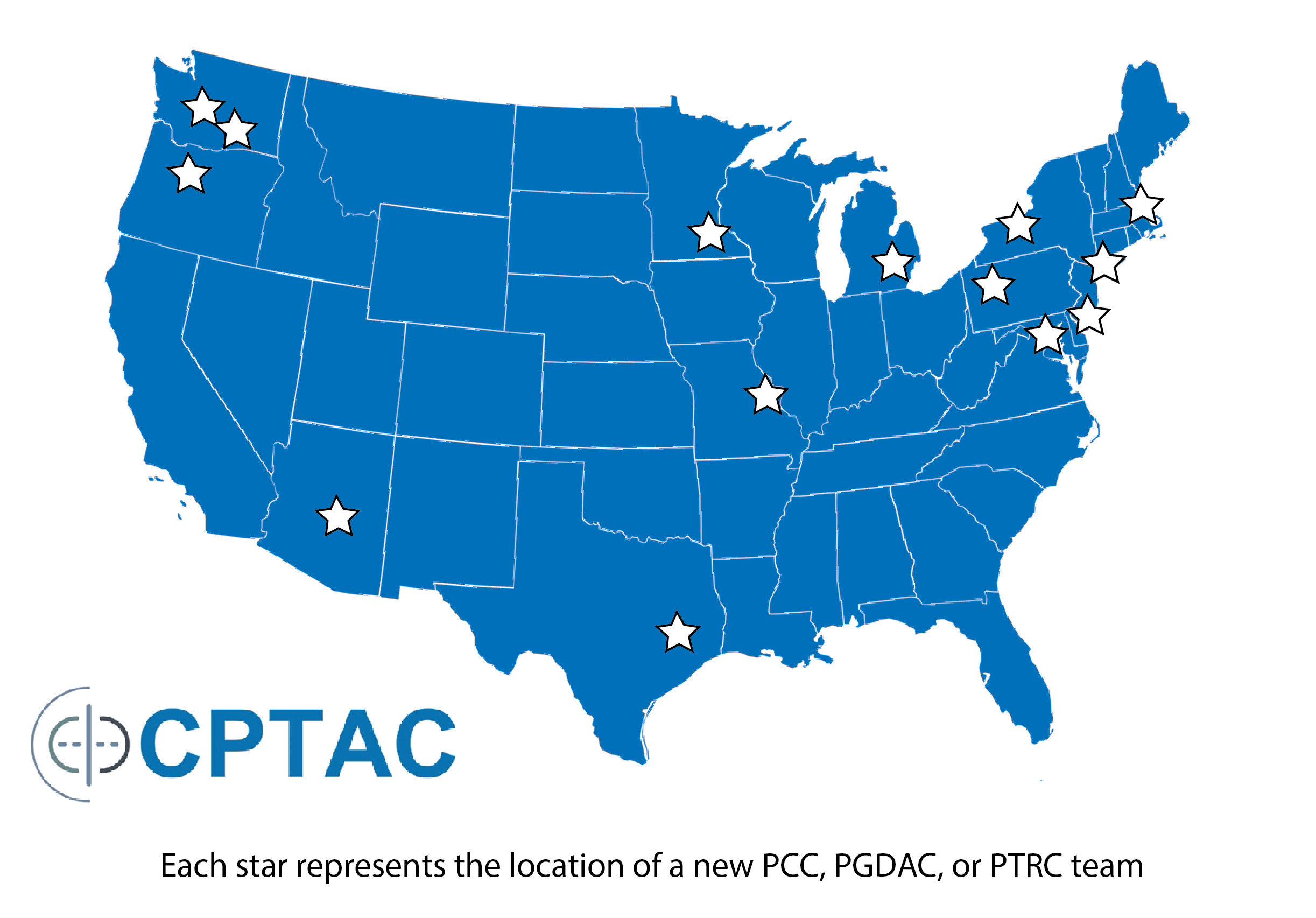This month, the Office of Cancer Clinical Proteomics Research (OCCPR) at the National Cancer Institute (NCI), part of the National Institutes of Health, has reaffirmed its commitment to furthering proteogenomics research by announcing the next round of Proteome Characterization Center (PCC; RFA-CA-21-023), Proteogenomic Data Analysis Center (PGDAC; RFA-CA-21-024), and Proteogenomic Translational Research Center (PTRC; RFA-CA-21-025) teams. These proteogenomic centers of excellence (PCCs, PGDACs and PTRCs) form the interdisciplinary pillars of NCI’s Clinical Proteomic Tumor Analysis Consortium (CPTAC).  This directly aligns with OCCPR’s mission to accelerate research and care for people with cancer by understanding how the proteins and genes (proteogenomics) contribute to cancer and make research data available to the broader community as a global public good.
This directly aligns with OCCPR’s mission to accelerate research and care for people with cancer by understanding how the proteins and genes (proteogenomics) contribute to cancer and make research data available to the broader community as a global public good.
PCC Teams include: Broad Institute, Johns Hopkins University, and Pacific Northwest National Laboratory. These PCCs use state-of-the-art, standardized mass spectrometry-based technologies to perform comprehensive proteomic characterizations on genomically-characterized biospecimens, and quantitative measurements of protein targets of biological/clinical relevance.
PGDAC Teams include: Baylor College of Medicine (focus on sequence and pathway/network-based proteogenomic integration), Broad Institute (focus on automated, comprehensive analysis of cancer proteogenomics data using PANOPLY), Icahn School of Medicine at Mount Sinai (focus on data preprocessing and quality control for missing proteomics data, batch effects, and global regulatory networks), and University of Michigan (focus on individualized proteogenomics, data independent acquisition (DIA) workflows, and quality-control scoring measures to identify genomic/transcriptomic variants expressed at protein level). These PGDACs conduct integration, visualization and analyses using different data types (such as genomics, transcriptomics, proteomics, imaging, and clinical data) to improve the understanding of genome-proteome relationship and the interplay/regulation of signaling pathways involved in cancer.
PTRC Teams include: Fred Hutchinson Cancer Center and University of Pittsburgh (focus on melanoma), Mayo Clinic Rochester and Mayo Clinic Arizona (focus on multiple myeloma), Oregon Health & Science University and Pacific Northwest National Laboratory (focus on acute myeloid leukemia), and Washington University in St. Louis and Broad Institute (focus on non-small cell lung cancer). These PTRCs will also collaborate with NCI-sponsored clinical trials in coordination with NCI’s Cancer Therapy Evaluation Program (CTEP) which organizes the clinical therapeutics development program of the NCI’s Division of Cancer Treatment and Diagnosis (DCTD). PTRCs are anticipated to contribute to precision medicine/oncology by applying proteogenomics to questions of drug response and resistance in clinical trials.
For a listing of teams, click here.

